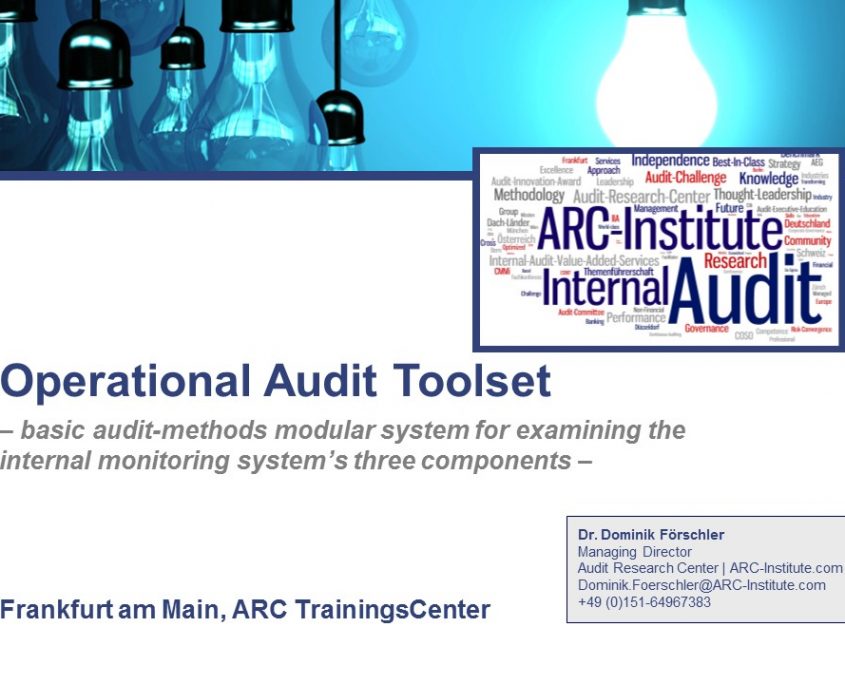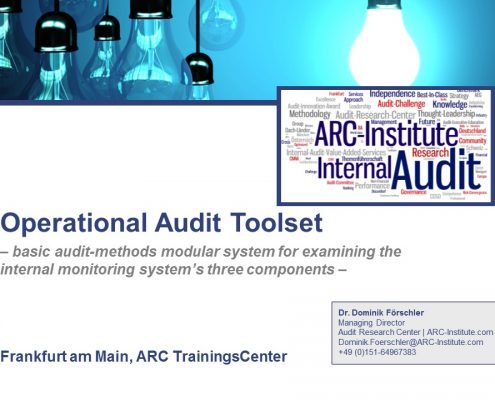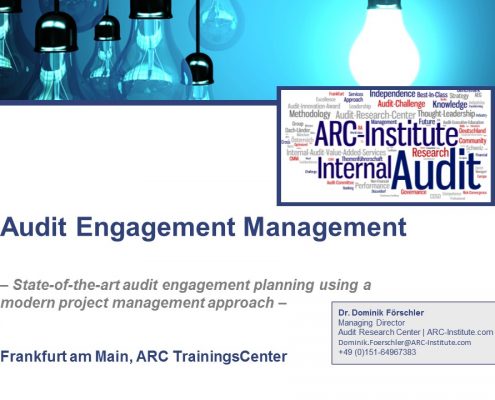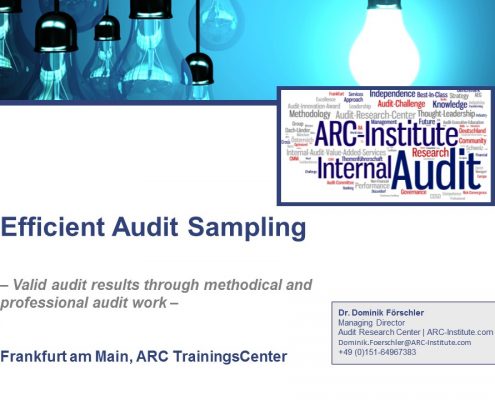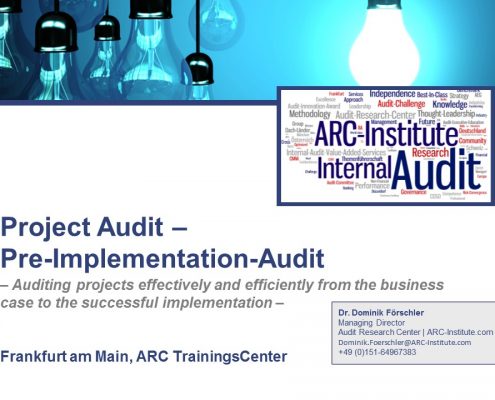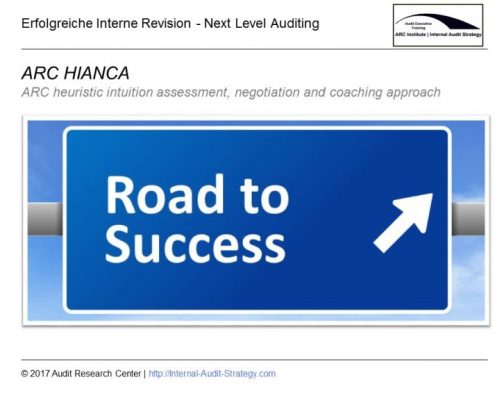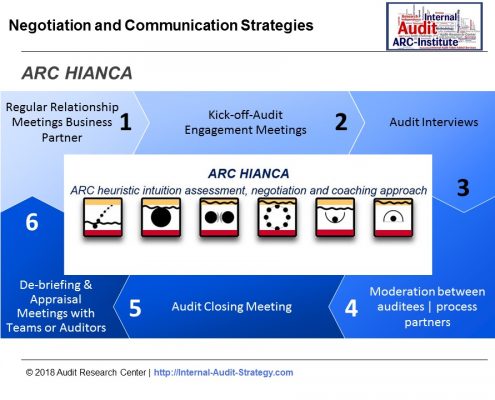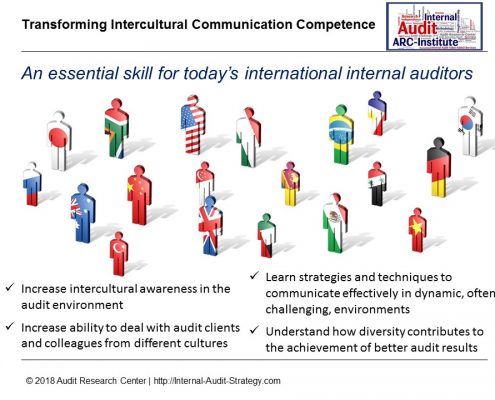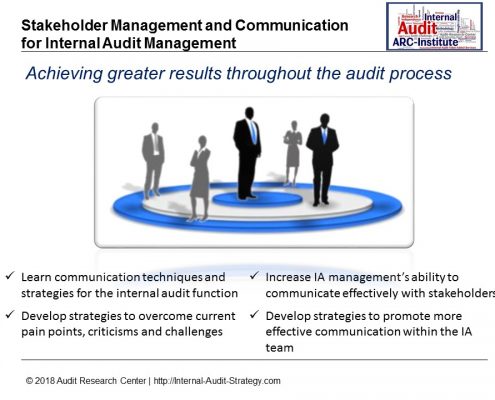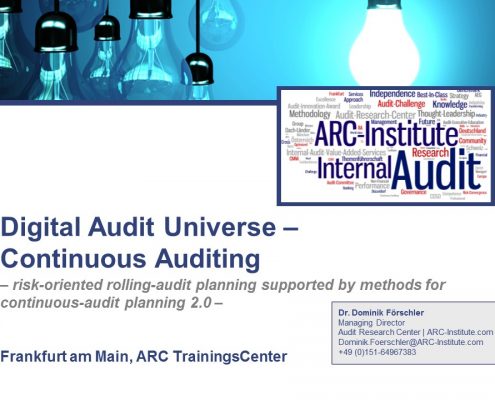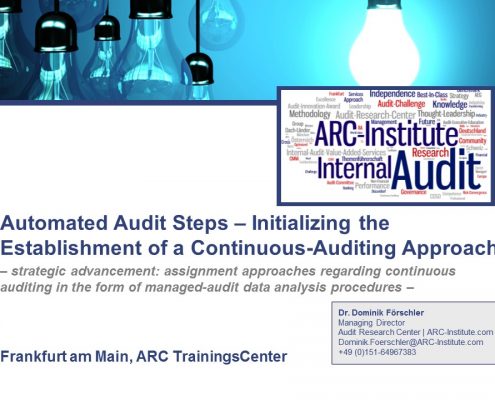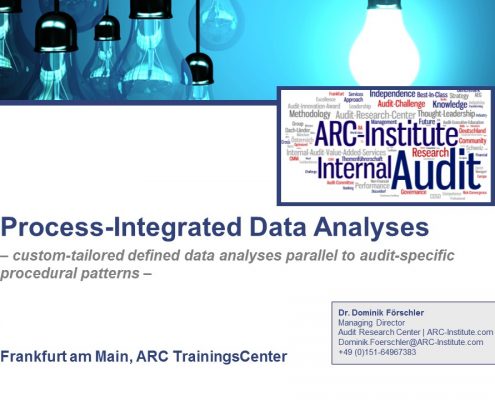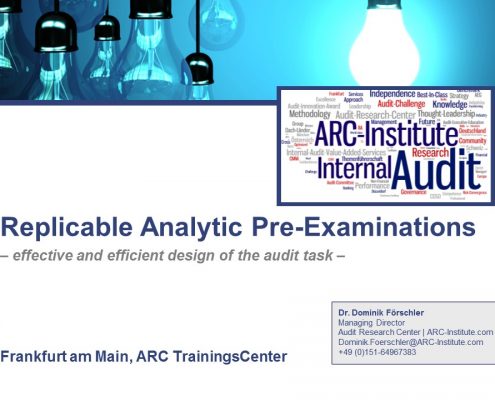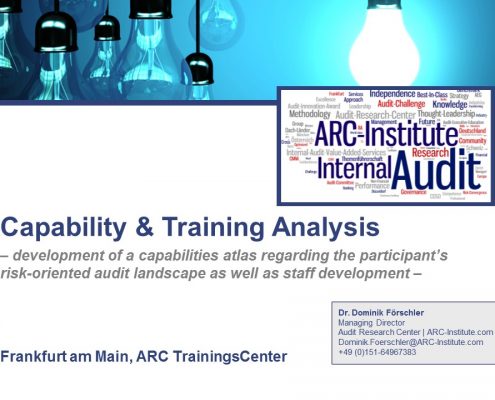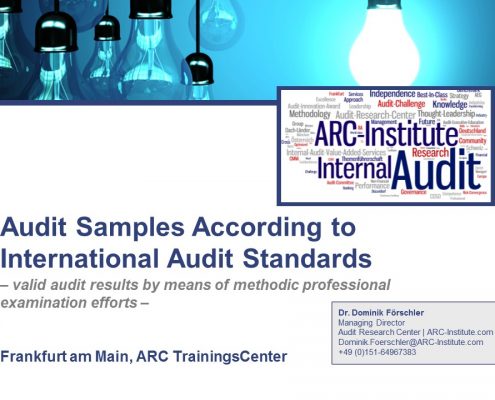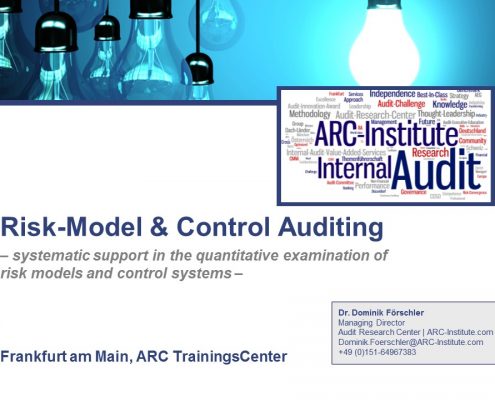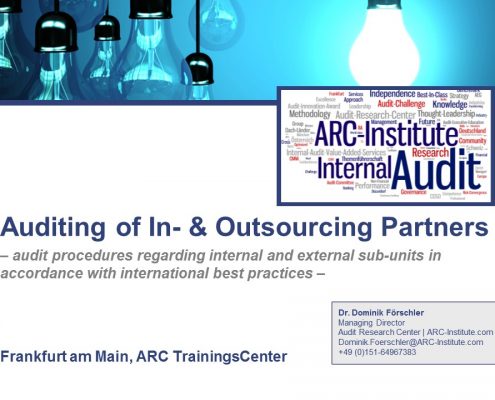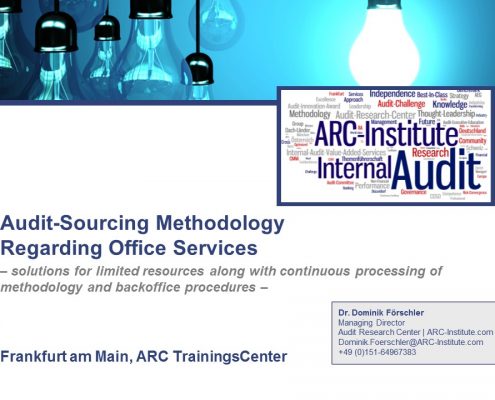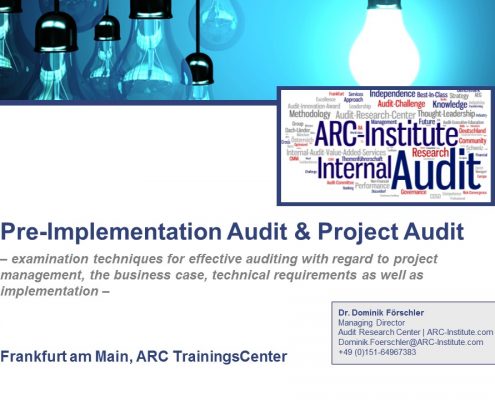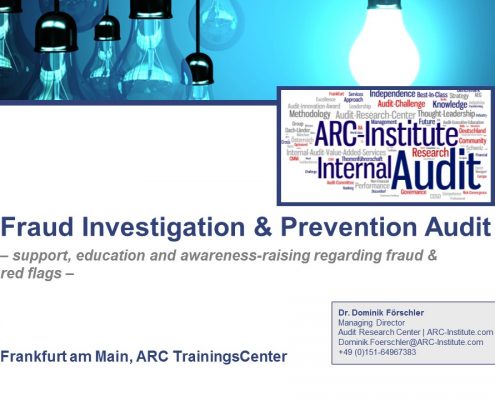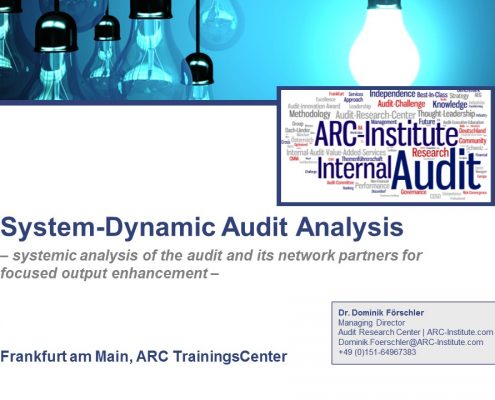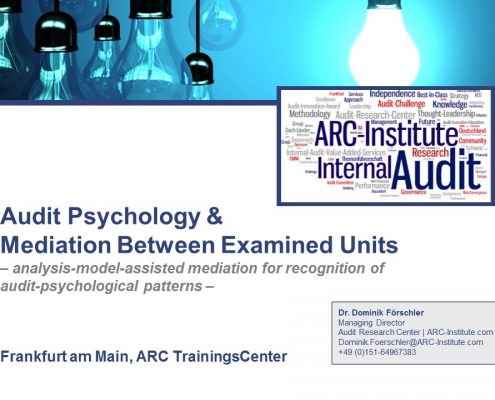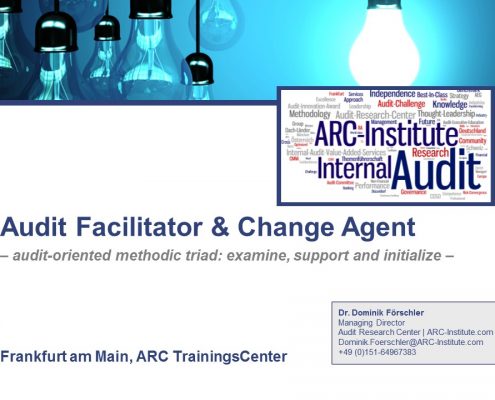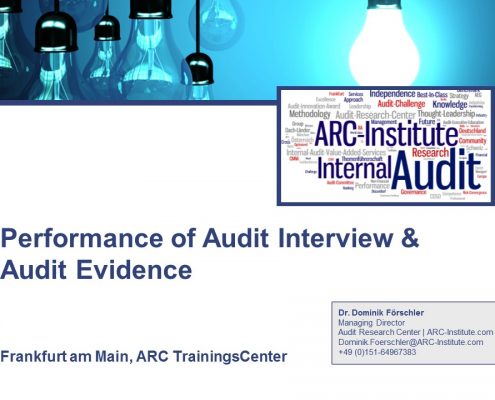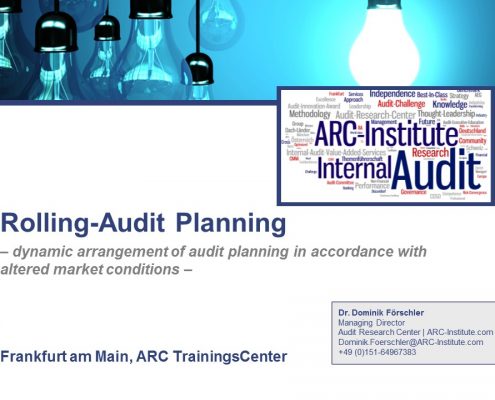Operational Audit Toolset
– basic audit-methods modular system for examining the internal monitoring system’s three components –
Objective:
The start of this training and consultancy module consists of a thorough introduction to and comprehension of the three prominent areas of audit operations. The respective areas covered in this module comprise the internal control system, the risk management system and the governance system (the management and monitoring system). In congruence with the auditing field’s global professional association, the Institute for Internal Auditors (IIA), these three areas of audit can be grouped from a methodic standpoint under the category of an internal monitoring system.
In this respect, course participants learn to apply various methods along the typical audit-examination process. At the same time, the audit objective is to define clearly the processes of the company as well as the associated assignments, authorizations, responsibilities, control functions and communication channels as well as to coordinate them with one another. In a risk-oriented and process-related manner, the internal audit function subsequently examines the existing internal monitoring system and assesses its performance capability. This, on the other hand, means that the auditor must understand the flow of information – beginning with initialization of the transaction, its authorization, its accounting and possible financial impact as an itemization as well as the ultimate financial reporting and the paths of reporting which are employed.
After identifying points in the process at which the occurrence of an error poses a threat (micro risks), the internal auditor checks whether management has installed and performs adequate control measures to minimize the risk involved.
Course participants receive useful tips and points of reference for implementation within their own operative audit practice. The introduction to a systematic, risk-oriented, top-down procedure consisting of analytic examination, process auditing and random-sample-auditing techniques complements the consulting module.
Topics:
- Systemization and understanding of the topic related to the three prominent areas of audit operations
- Important methodic risk categories for risk analysis pertaining to an internal audit
- The audit risk channel – learning to differentiate between inherent risks and operative risks
- Distinct standard procedures applying to internal audit operations – as defined within the framework of the IIA’s Code of Ethics
- Options for, significance and consequences of an independent organizational integration of the internal audit function within the company
- Anticipatory and sequential risk-oriented preparation of the audit
- Procurement of information and definition of the audit’s scope
- Technical and organizational preparation of the audit
- Distribution of assignment information within the audit team
- Acquaintance with, identification and analysis of internal control systems and key controls
- Techniques for visualizing internal control systems
- Principle regarding the understanding of an “expert third party”
- Qualitative rules applying to audit documentation and referencing techniques
- Structure of work papers in various audit situations
- Necessity of audit documentation for the audit review’s concluding discussion
- Examination and detection risk with a focus on beta audit risk
- Detailed implementation options for the practical audit environment
Management Trainer
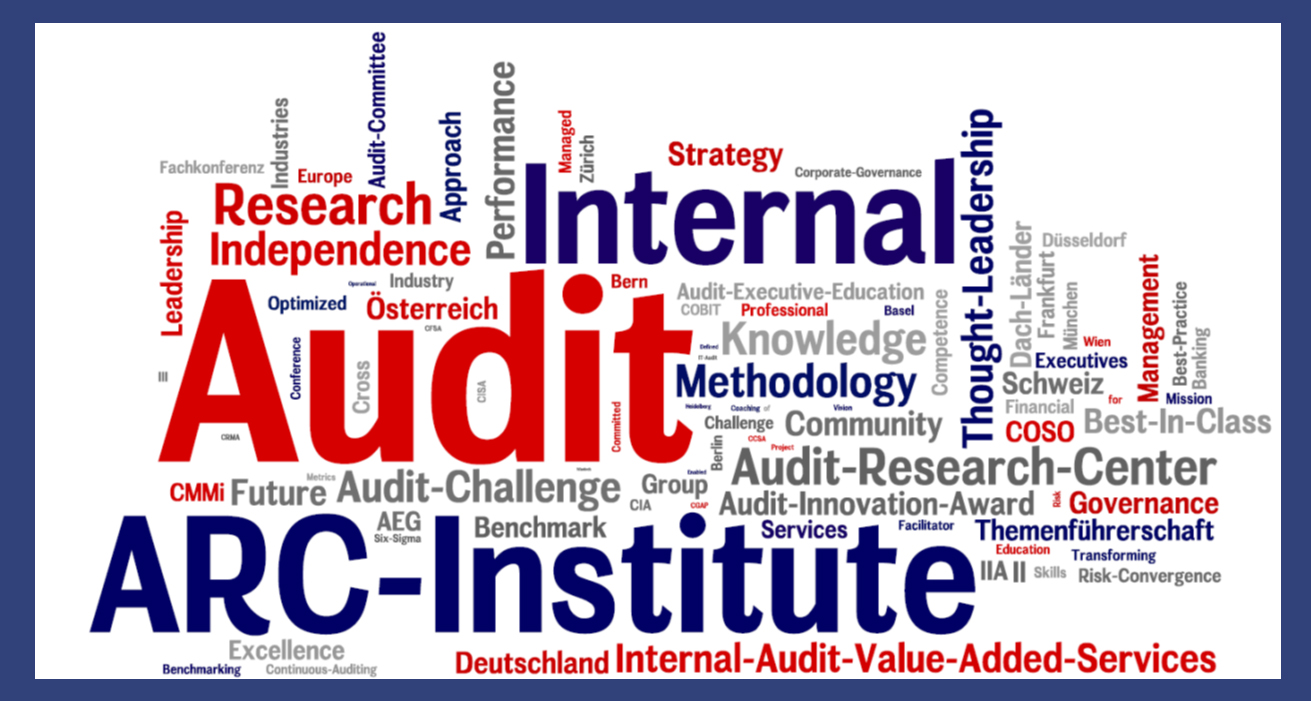
About the ARC Institute
With the Audit Research Center, the ARC Institute provides important impulses for the further development of the audit industry. The focus is on networking science and practice. The focus is on further and new development in cooperation with auditors, companies and associations in order to maintain practical relevance and to develop methods, tools and concepts that can be implemented. The results developed in dialogue with industry experts serve as a guideline and adaptation options in practice today, in order to increase the overall benefit of the company in the long term and sustainably with innovative auditing work.
In the spirit of thought leadership, the ARC Institute and the Audit Research Center stand for topic leadership and forward thinking in the area of internal auditing.
Currently, the ARC Institute supports not only leading supranational institutions in the context of research, consulting and personnel development projects, but also numerous listed companies in the three German-speaking countries of Germany, Austria and Switzerland.
Terms of participation and price
Each open training day is 890,- Euro plus VAT when booking the modules individually. Inhouse training conditions are based on individual pricing and travel expenses. After receipt of your registration you will receive a confirmation of registration with invoice. Please pay the registration fee directly after receiving the invoice. The registration fee does not include 19 % VAT. The price includes participation in the lectures of the booked event, lunch, coffee breaks and seminar documents.
At a glance
Target audience:
Employees and managerial staff from the internal audit function
Methodology:
Interactive presentation, discussion, group projects, practical exercises, case studies, retrospective summary
Training / Training / Consulting period:
Bookings are based on an audit-situation analysis as well as a personal preliminary meeting (workshops generally cover 2 days of instruction, audit performance/support determined by circumstances).
Contact:
Would you like more details about ARC’s Audit Training & Consulting Services, or do you wish to book an appointment with its team? Please address your e-mail inquiry to Info@ARC-Institute.com or phone us at +49-2159-6945-904
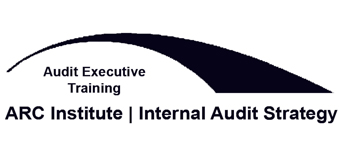
 ARC Institute Profile: Managing Director | Senior Equity Partner
ARC Institute Profile: Managing Director | Senior Equity Partner Tracie Marquardt
Tracie Marquardt ARC Institute Profile: Senior Engagement Manager
ARC Institute Profile: Senior Engagement Manager